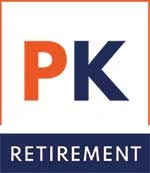MITIGATE FIDUCIARY RISK
Are You Properly Managing Your 401(k) Plan?
Have you done everything possible to limit your risk as a plan sponsor?

Retirement plans have unique reporting and compliance requirements that, if not met, can put the plan sponsor and plan assets at risk. Risks related to investment choices, insurance, bonds, notifications, deferral payments, etc. As a 401(k) plan sponsor, it’s crucial to understand your fiduciary duties and take steps to protect both your plan participants and yourself.
Our retirement plan fiduciary review and recommendations are designed to strengthen your fiduciary protection.
KEY RECOMMENDATIONS
Expert Guidance and Fiduciary Support
A dedicated financial advisor brings expertise in retirement planning, investment management, and regulatory compliance. PK Retirement brings that guidance to the next level with decades of tax expertise.
Understand Your Fiduciary Role
Recognize that you are a fiduciary if you have discretion over plan administration, management, or investments.
Consider whether to handle fiduciary duties in-house or outsource them to a third-party provider.
Comply with ERISA Standards
The Employee Retirement Income Security Act of 1974 (ERISA) sets strict standards and duties for fiduciaries including managing the plan solely for participants’ and beneficiaries’ benefit; keeping plan expenses reasonable; following the plan’s governing documents; and ensuring diversified investments with care, skill, prudence, and diligence.
Implement Best Practices
Establish a plan committee comprising diverse members who understand their fiduciary duties.
Document committee deliberations, including meeting minutes, to demonstrate a prudent decision-making process.
Consider fiduciary warranties from advisors or investment providers to ensure ERISA compliance.
Obtain fiduciary insurance to cover liability arising from breaches of duty.
Maintain Comprehensive Records
Keep a well-organized file (paper and/or electronic) that includes charter details, plan documents, trust agreements, investment policy statements, committee meeting minutes, Form 5500 filings, compliance testing results, service provider information, and all participant communication.
Consider Safe Harbor Provisions
Section 404(c) safe harbors relieve plan sponsors and fiduciaries from liability related to investment menus, plan designs, and participant disclosures.
Shift investment management responsibility to employees by leveraging safe harbor provisions.

